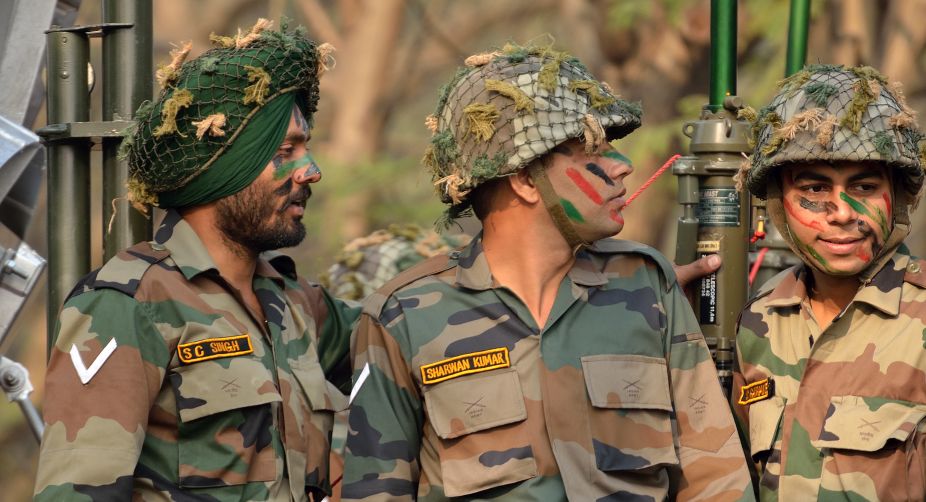MHA amends rules; NGOs registered under FCRA will have to give details of foreign funds
The Ministry of Home Affairs (MHA) has amended rules pertaining to the filing of annual returns by Non-Government Organisations (NGOs)…

PHOTO: Getty Images
It is amazing that an RTI application regarding the status of soldiers of Indian National Army (INA) has been referred to the Ministry of Home Affairs (MHA) by the Central Information Commission (CIC). According to a recent PTI report the CIC has opined that the MHA is under an obligation to explain the logic or reason in “neglecting the members of INA led by Netaji and rejecting them the status of freedom fighters.” He further asked whether the MHA was ready to provide pension benefits to INA soldiers. If only the applicant or officers in the government dealing with query had taken pains to go through the records and various documents available in the archives such ridiculous doubts wouldn’t have arisen.
No doubt Netaji Subhas Chandra Bose was a charismatic leader of the INA. But unfortunately it is not widely known that he was not its founder. The founder president of INA was General Mohan Singh, who founded the organisation almost two years before Netaji landed in Singapore in July 1943. Mohan Singh was a young major of the British Indian Army who, like other INA soldiers, was a prisoner of war captured by the Japanese army.
Advertisement
In a foreword to his memoirs Lt. General Iwaichi Fujiwara, who was a close associate of Netaji in the strategic planning and tactical operations of INA, has written: “The young dashing Mohan Singh was the founder and creator of the INA. Without his burning patriotism, his immovable conviction and lightening action … no hope could possibly be entertained for the birth and growth of the INA. Without his spirited involvement at the initial stage no attempt to organize it later would have proved successful. Even the appearance of the great Netaji, a warrior son of India in Singapore in July 1943 would have proved too late for the purpose.”
Advertisement
General Fujiwara also felt that Netaji took the risk of a submarine voyage to S.E. Asia from Germany at the height of World War II as he had learnt the news of birth of INA, whose chief General Mohan Singh and other senior commanders were entreating him to take over the organisation for the achievement of his objectives.
According to Col. (Dr.) D.S. Raju, who served as medical adviser to both Netaji and General Mohan Singh the latter had insisted that Bose should be brought to Singapore as a pre-condition for his further cooperation with the Japanese authorities. Mohan Singh therefore had set the stage for the advent of Netaji to East Asia. However, Col. Raju felt that “from the military standpoint of view he came on the scene too late.”
By the beginning of 1944 when the INA forces and Japanese army entered the battle zone around Imphal it was too late. The Allied defences were very strong and the fortunes of Axis powers were on the decline. INA troops and the Japanese suffered heavy losses and were gradually pushed back and compelled to evacuate Burma. It was a tragic end of a glorious patriotic struggle but no historian could underestimate the value of INA and the role it played in expediting the end of the mighty empire.
Writes General Mohan Singh in his memoirs entitled Soldiers Contribution to Freedom Struggle: “The Nation is deeply indebted to Jawaharlal Nehru. We must record that before his demise in 1964, Pt. Nehru realized the injustice done to the INA and after the decade and half of heart burning and immense suffering granted to the INA personnel the status of a political sufferer. He, having appreciated the tenacious efforts put up by the INA personnel for their rightful dues, set in motion the administrative machinery to grant them the arrears of pay and allowances which were confiscated when they were released from prisons in India.”
It was Generals of the British Indian army (before 1949) and Indian Army (after General Cariappa took over in January 1949) who opposed tooth and nail any concessions for INA personnel. Both Viceroy Field Marshal Wavell and C-in-C Field Marshal Auchinleck were unwavering in their commitment to take strongest possible disciplinary action against the Azad Hind soldiers. It was a natural reaction of the generals as the soldiers of regular army and INA were on opposite sides. However, the political leaders of the day, especially Pt. Jawaharlal Nehru, and later Indira Gandhi having the capacity to see the ‘bigger picture’ and appreciate national sentiments took the right decisions in favour of the brave officers and men of the INA. Gen. Mohan Singh acknowledges this in his magnum opus.
“Destiny had so willed that what the father had begun the daughter accomplished when she became the Prime Minister of India. It was during the Premiership of Indira Gandhi that the arrears of payments were made and the INA men were honoured as freedom fighters.”
The writer, an ex Armoured Corps officer, is Member, National Commission for Minorities. The views expressed by him are personal.
Advertisement